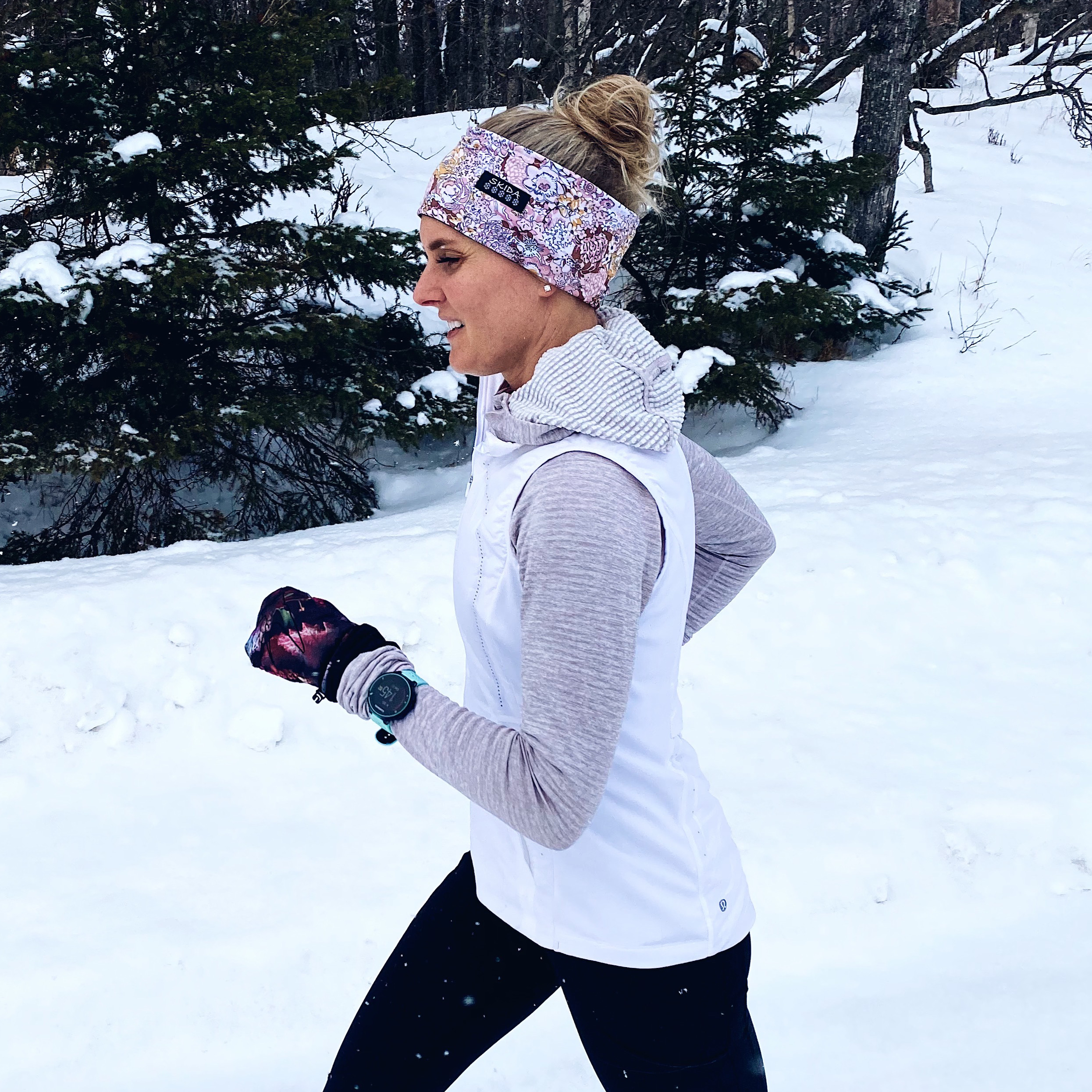The million dollar question: How do I fuel during a long run?
As runners, we basically know what type of training we need for the marathon: 4-5+ days of running per week, lots of miles (within reason), a long run each week, and a little bit of speed/tempo work thrown in there as well. However, what seems to trip people up more is the fueling part. Having a good fueling plan can definitely help you have a successful long run, but if there are missing pieces, it can end up in a I-just-hit-the-wall type of run.

Fueling for a long run starts hours (if not days) before your long run. You need to be fueling properly on a daily basis or you are going to struggle. You may feel flat or sluggish, or just not have the energy to complete the run if your nutrition isn’t supporting long distance running on a regular basis. Eating well-balanced meals with a variety of foods, lots of carbs, and enough calories is going to play a big part in how you feel during a long run. Of course, the morning of and fuel during a long run is also important, but make sure you have a good strong foundation on a daily basis to build upon.
The Night Before
The night before your long run, make sure to consume a substantial meal with carbs, proteins, and fats. All macronutrients are necessary for running and performing well. And don’t slack on the carbs, by any means. They are essential for long distance running. Depending upon your body, you may want to lay low on some of the more fibrous foods as they could cause GI distress the next day. Lastly, don’t be scared to have an extra snack before bedtime because you will need it the next morning for your long run.
Dinner Ideas:
– pasta with a protein source
– chicken + rice + a salad
– tofu pho
– lasagna
– steak + baked potato + pasta salad

The Morning Of
The morning of your long run, wake up about 2 hours before running to eat a substantial breakfast. I usually advise people to aim for 300-500+ calories. This will be dependent upon how long you are running, how much time you have, and how much you can stomach, so this is a very rough estimate. I try to take in fuel within 1-2 hours of starting, but I will often space out my fuel since it is hard to get it all down at once, so I will often have something at 2 hours, 1 hour, and 30 minutes before starting.
Many times on race day I do not feel hungry because of my pre-race nerves, but I know I still need to eat. I typically gravitate towards an English muffin with peanut butter and sliced banana. I’ve done oatmeal, but I often think it feels heavy in my stomach, but that’s me. I know many runners (including pros who use that as their go-to meal), so figure out what works for you. These long runs are all about practicing for race day!
Pre-run food ideas:
– bagel with a nut butter
– English muffin with peanut butter/nut butter
– oatmeal (instant over steel-cut, typically)
– pancakes
– frozen waffles
– granola bar
Whatever you choose to eat, make sure it is mostly carbohydrate-based. I would stay away from foods that might make you feel heavy or weighted down such as eggs, meats (bacon, sausage), or greasy foods (even donuts, potentially). You may not do well with a lot of dairy products (milk, yogurt, etc.) on race morning, and a smoothie might be too much fiber and “fluff,” if that makes sense. Of course everyone is going to be different, so test out different options and see what makes you feel the best.
Food that may not sit well with you:
– eggs
– orange juice (acidity)
– bacon, meats, breakfast sausage
– heavy, oil-laden foods
– dairy products
– smoothie (too much fiber and too much liquid potentially sloshing in your stomach)

During the Run
During your run, start consuming fuel starting at about 60 minutes and ideally no later than 75 minutes. This will ensure your energy stores don’t dip and you don’t hit a slump in how you feel. If you get behind in your fueling, it is hard to catch up. There are calculators to determine how much you need, but I typically take in 100 calories every 45 minutes.
After the Run
Your fueling is not done just because your run is done. It is best to fuel within 30 minutes of finishing your long run (or any run for that matter), even if you are not hungry! This can be hard as I often rarely feel hungry right after running, especially when it is long run or hard workout, but I know my body needs the fuel, and I am doing a big service to my body by restocking those glycogen stores within this time frame. Also, it is important to refuel again with a full meal within 1-3 hours after finishing your workout. Sometimes this is where I really fail. I’ll have a large snack and then get busy doing things, and before I know it more than 3 hours has passed and my stomach is making noises and completely empty.
Post-run food ideas:
– smoothie (make sure to add some protein to it)
– protein pancakes (like Kodiak Cakes)
– eggs + toast
– string cheese + pretzels
– cereal
– chocolate milk (has the perfect ratio of carbs to protein)

I hope this helps and gives a little clarification on how to fuel before, during, and after a long run. It takes time to figure out what works for you, so keep a log of what you eat (or mental notes), so that you can be successful and not hit the wall at mile 16 like I did during my first marathon because I only took half of an energy gel in. #rookiemistake
As a disclaimer, I am not a registered dietitian (RD), so please consult an RD for specifics for you and your situation. You can check out the guest post my sister (who is an RD) did for me a couple months ago: The Most Common Nutrition Mistakes Runners Make. It has a ton of great information on fueling for success for your runs! Also, be sure to contact her if you need more help with your pre-race nutrition. You can click HERE to apply for her coaching services.






